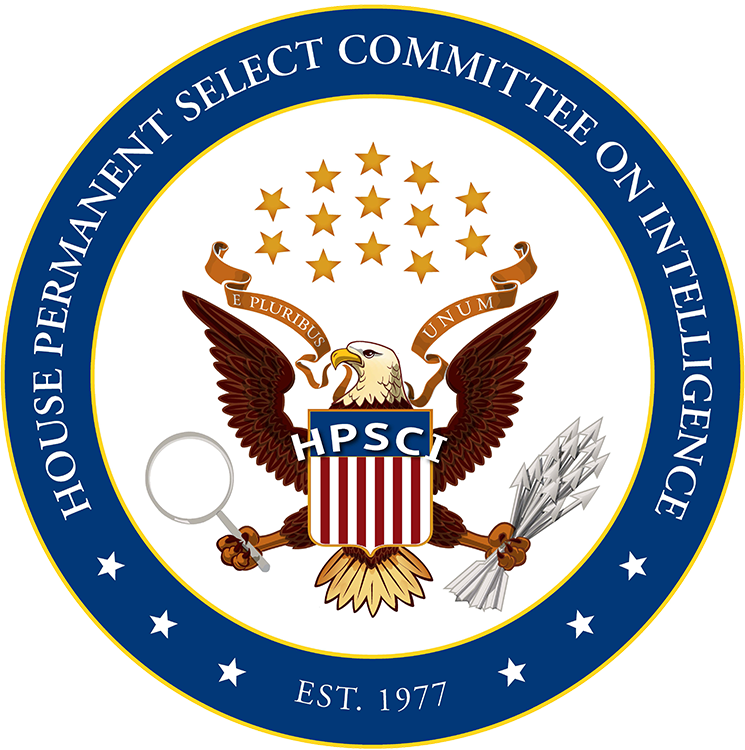Press Releases
WHAT THEY ARE SAYING: U.S. Counterintelligence Reform Cannot Wait
Washington,
October 15, 2025
WASHINGTON, D.C.— As part of the FY2026 Intelligence Authorization Act, the House Permanent Select Committee on Intelligence advanced Chairman Rick Crawford’s counterintelligence (CI) reform effort, or SECURE Act. Counterintelligence experts have issued a stark warning—years of ignored reform recommendations have created critical vulnerabilities in our nation's CI system. Without immediate action, specifically reorienting counterintelligence toward a more proactive and unified posture, the U.S. risks a 9/11-scale intelligence failure. Read what experts say we must do. Colin Pascal, former director of operations for the U.S. Army Foreign Counterintelligence Activity: “The defensive failures of American counterintelligence are important but so is the failure to act offensively. One of the most important impacts of language in the [House] Intelligence Authorization Act [SECURE Act] is to redefine counterintelligence in federal law from something that “protects” to something that also deters, disrupts, investigates and exploits.” (The Hill) Colin Pascal, former director of operations for the U.S. Army Foreign Counterintelligence Activity: “Espionage cases are complex and the agencies and agents who resolve them deserve the nation’s admiration and gratitude. But that doesn’t change the fact that every high-profile arrest is a success following failure. An arrest means that counterintelligence has failed to deter and, for a time, to detect the recruitment of an American by a foreign intelligence service. In some cases, it represents a failure of operational imagination, if the arrest neutralizes a threat when other options are available.” (The Hill) Former CIA officer Charles “Sam” Faddis said the reform legislation [SECURE Act] would help U.S. intelligence agencies approach counterintelligence more vigorously. “Fundamentally, though, it begs the question: Who is going to do it? Who will run these ops? The FBI has no idea what it is doing in this realm. CIA has lost its edge. If we don’t change that, we are just wishing we could do better.” (The Washington Times) John Schindler, former National Security Agency senior intelligence analyst and counterintelligence officer: “Crawford has offered an intelligent, forward-thinking proposal for Washington to finally get counterintelligence right. The foreign espionage threat, already serious, is rising fast and may soon be too big to defeat.” (Washington Examiner) David Turner, former operations officer for U.S. Army Intelligence and Security Command: “The current U.S. counterintelligence system is widely seen as fragmented, reactive, and lacking a unified strategic direction, undermining its ability to proactively counter foreign spies. Multiple agencies have overlapping CI roles, yet no single mission commander, and the National Counterintelligence and Security Center has had insufficient authority to coordinate them.” (Reforming the U.S. Counterintelligence Enterprise: Current Efforts and Proposals) Shawn Michaud, former U.S. Army Counterintelligence Special Agent: “The SECURE Act is the counterintelligence reset of our time and we’ve needed it for years. First, it puts a single empowered leader back at the center of U.S. CI. It’s inside the ODNI and it gives that leader the authority to deconflict. But most importantly, direct CI across the government in a newly established national counterintelligence task force. We have never had someone at the top that can direct counterintelligence to achieve a particular thing.” (CI Press Podcast) Brig. Gen. Terry Bullard, former Commander, U.S. Air Force Office of Special Investigations: "We can no longer rely on only an aggressive, reactive counterintelligence posture or law enforcement-centric model for this fight. Our adversaries are using every tool available to them - legal, diplomatic, and economic - and they are doing it through state-sponsored networks with global reach. If we stay siloed and on defense, they win." Shawn Michaud, former U.S. Army Counterintelligence Special Agent: “It also updates our CI mission, and it adds to verbs to it, investigate and deter…and for me, I’ll tell you, one word, it seems simple but adding ‘deter’ further pushes counterintelligence from a support role to an effects role that closely aligns with combatant commands, integrated deterrence, plans, goals and objectives.” (CI Press Podcast) Shawn Michaud, former U.S. Army Counterintelligence Special Agent: “[SECURE Act] is exactly what we need in terms of great-power competition. And I think it's exactly what we need in the event of large-scale combat operations.” (CI Press Podcast) Shane McNeil, former Pentagon counterintelligence adviser: “If we don’t adapt, we’re bringing a PowerPoint deck to a gunfight. Modern warfare isn’t just about missiles and tanks — it’s about access, influence and control. And CI is the weapon the United States has underutilized for far too long. It’s time to stop playing defense and start putting info warheads on spy foreheads.” (The Washington Times) Shane McNeil, former Pentagon counterintelligence adviser: “Chinese and Russian intelligence campaigns aren’t isolated intrusions; they’re strategic efforts to undermine the United States through sabotage, influence, supply chain compromise and cognitive manipulation. This is unrestricted warfare, and CI needs to respond in kind — not reactively, but offensively.” (The Washington Times) Shawn Michaud, former U.S. Army Counterintelligence Special Agent: “From my perspective, I think we are at a decision point. Status quo is no longer an option. We’re either going to proceed with the SECURE Act or we’re going to regress by dissolving any sort of national CI leadership.” (CI Press Podcast) |
